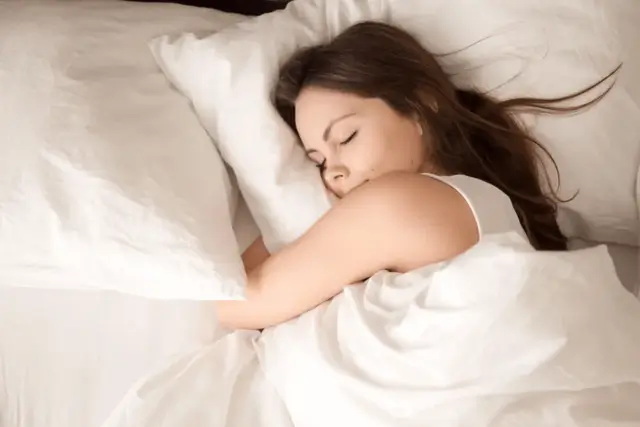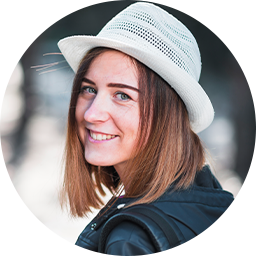The Science of Sleep: Why You're Tired and How to Fix It
Maybe you've experienced this before: you sleep for a full eight hours at night, but still wake up feeling tired the next morning.
Actually, according to the World Health Organization, 87% of people worldwide struggle with sleep issues—that's billions of people! From work stress to phone screens, many factors quietly disrupt our rest. But here's the good news: science and smart tools are making it easier to understand and fix poor sleep.
Let's explore how modern sleep tech, expert-backed advice, and a few daily habits can help you sleep better and feel more energized.
Sleep Tech 101: Why You Still Feel Tired
Feeling tired after 8 hours of sleep may be caused by the following reasons:
It's Not How Long You Sleep, But How Well
Sleep quality is not only about how many hours you sleep. What really matters is whether your sleep includes full cycles and enough deep rest. A full sleep cycle includes light sleep, deep sleep, and REM (Rapid Eye Movement). If your alarm wakes you in the middle of deep sleep, you're likely to feel groggy and sluggish.

Hidden Sleep Disruptors: Stress, Caffeine, and Blue Light
Evening stress or a late cup of coffee can keep your body alert when it should be winding down.
Blue light from your phone or laptop also tells your brain it's still daytime, delaying melatonin release. These are easy-to-miss but powerful sleep disruptors.
Tackling Insomnia with Digital Health Tools and Expert Advice
If you find yourself lying awake at night, unable to relax no matter how tired you are, you might be dealing with insomnia. This condition is more common than most people realize—and more manageable than you might think. Thanks to advancements in digital health tools and sleep science, there are now effective ways to manage and reduce insomnia symptoms.
Sleep Supplements: Melatonin, Magnesium, and Natural Alternatives
Melatonin is one of the most popular sleep aids, but it's not a cure-all. Magnesium, L-theanine, and herbal teas like chamomile are also widely used. While some people benefit from these, results vary. It's best to try one at a time and monitor how your body reacts.
Sleep Apps with CBT-I: Do They Really Help?
Cognitive Behavioral Therapy for Insomnia (CBT-I) is the gold standard recommended by doctors. Today, many sleep apps now include CBT-I modules, helping users change thoughts and habits that hurt sleep. Apps like Sleepio and Somryst are leading the way in digital mental health for insomnia.
What Doctors Say About Long-Term Sleep Aid Use
Most sleep experts warn against using prescription sleep aids long-term. These can lead to dependence and often don't fix the root cause. If sleep problems last more than a few weeks, a sleep specialist or CBT-I app may be a better choice.
Smart Devices and Wellness Gadgets That Could Improve Your Sleep
Sleep Monitoring Devices: Rings, Watches, and Smart Beds
The sleep tech market is booming. Devices like the Oura Ring, Apple Watch, and smart beds like Eight Sleep offer detailed sleep analytics. They track patterns over time and suggest small changes—like adjusting bedtime or room temperature—for better rest.
Smart mattresses and sleep trackers use sensors to detect movement, heart rate, and even breathing. Some can adjust firmness or temperature in real time. These gadgets are especially useful if you often wake up without knowing why. They're popular in the sleep tech industry and offer real-time feedback you can actually use.
Blue Light Glasses and Smart Lighting for Better Circadian Rhythm
Blue light-blocking glasses filter harmful light from screens, helping your body stick to its natural sleep-wake cycle. Smart bulbs that change color in the evening also reduce stimulation and signal your brain to prepare for sleep. These tools are growing in popularity in the smart home devices market.
Noise Machines vs. Sleep Headphones: Which One Helps More?
Lifestyle and Wellness Industry Habits That Impact Sleep (More Than You Think)
Even with the best tech, poor sleep can come down to simple everyday choices. Many habits that seem harmless actually affect your sleep quality in a big way. Let's take a look at whether you've picked up some of these everyday habits without realizing it.
Evening Tech Use and How to Wind Down Naturally
Scrolling through your phone before bed might feel relaxing, but it's keeping your brain alert. Try replacing screen time with calming activities like reading, stretching, or listening to sleep-friendly music. Some people benefit from using guided wind-downs in wellness apps like Calm or Headspace.
Food, Alcohol, and Supplements Before Bed: What to Avoid
Heavy meals and alcohol can interrupt your sleep cycle. Even "sleepy" drinks like wine may help you fall asleep faster but lead to more wake-ups later. It's best to finish eating 2–3 hours before bedtime and avoid caffeine after midday.
The Role of Exercise and Timing on Sleep Quality
Exercise can improve sleep quality, but timing matters. Morning or early afternoon workouts are ideal. Intense workouts too close to bedtime can make it harder to fall asleep. Even short daily walks or light yoga can support better sleep in the long run.
In the End
Sleep is the foundation of focus and mental clarity. When you're well-rested, you make better decisions, solve problems faster, and feel more motivated. Improving sleep is often the first step toward better performance at work and in daily life.
Want to wake up refreshed every day? Start by tracking your sleep, adjusting your habits, and exploring the tools that fit your lifestyle. If you're already dealing with sleep issues, don't panic. Try to identify what might be causing them. Stay calm and positive. If you can't fix things on your own, talk to a doctor. You can absolutely get your sleep back on track. Try the suggestions above.
You don't need to change everything at once. Even small changes can lead to better rest and a better life.
Hi! I'm Aria — someone who loves sharing everyday randomness and has an obsession with AI.I like writing about funny little things in life — weird stuff I run into while traveling, or the cool (and not-so-cool) things I've discovered while messing around with AI tools. I'm all about finding the fun in the ordinary. Stick around for the stories I've picked up along the way, and feel free to share your own too!





